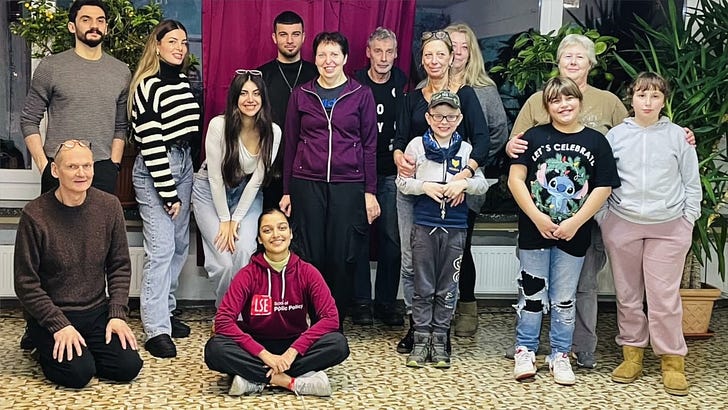Experimenting, learning, and reimagining aid 🌍
With just five years until 2030, the development sector is at a crossroads.
With just five years until 2030, the development sector is at a crossroads. More recent events, at a global and political level, exacerbate and accelerate this sense of a sector in need of reform - or which will have to adapt, to a new and emerging context.
Many organisations seek to think, act, and convene differently to address our world’s most pressing challenges. Over the past six months, CPI’s Collective has been doing just that– experimenting, learning, and connecting on ways to challenge the status quo of development.
One of our cohort fellows – Reshma Anwar – turned this exploration into action by creating and running an experiment. Reshma is investigating what it means to decolonise the mind through the body at the individual level. In conversation with CPI’s Saumya Shruti, Reshma shared the process that led her to experimentation and learning!
"Within the Collective, the way we navigated the journey together led me to start unlayering my thoughts. That unlayering of thoughts ultimately led to a certain learning inquiry—to come at it from a decolonisation perspective in a different way. Before, I thought it needed to start at the top, from the systems level. But what if we start from ourselves? What if we start decolonising our own ideas and how we’re brought up? What if we decolonise the mind and the body first, and what if that could lead to ultimately a bigger change?"
Reshma’s experiment reflects how exploring deeply personal and embodied learning can catalyse systemic change. By experimenting at the level of the self, she opens new ways of thinking about how change happens, not just within institutions, but within people.
Recapping our learning journey: CPI’s Collective Open House
On January 30, 2025, we hosted our first Open House, a space for reflection, learning, and co-creation. We set out to:
Show, not tell: bring the journey of CPI’s Collective to life
Share insights on emergent facilitation, experimentation, and mutuality
Discuss what’s next for Phase Two and invite attendees to shape the future of CPI’s Collective
This interactive session, co-facilitated with Collective fellows, explored CPI’s Decolonising the Development Sector and Measuring Systems Change cohorts in depth. It allowed changemakers to engage with stories of collaboration, mutuality, and emergent facilitation while experiencing CPI’s Collective process firsthand. Watch the recording here.
From local experiments to a sector in crisis?
Since then, global and political events have taken over any meaningful discussion about the future of aid and development as a sector.
In addition to the USAID freeze, many bilateral donors, including the UK, Switzerland, Belgium, the Netherlands, Australia, and others, have recently announced significant cuts, revealing deeper, structural weaknesses in how international aid is structured, allocated, and governed. Some have even asked, is this the end of Official Development Assistance (ODA) as we know it?
The current situation highlights the long-standing need for reform in how aid is structured, allocated, and governed. Sudden funding decisions create instability, affecting not just organizations but also the communities that rely on these resources.
For aid to be effective, it must be predictable, transparent, and rooted in long-term partnerships and commitments to the communities it is there to serve - development is done by a people, not to a people. Shifting towards more resilient funding models can help ensure that civil societies and communities are not undermined by abrupt policy changes.
The bigger picture: we are running out of time
This crisis in the aid and development sector forces us to confront a harsh reality:
⏳We are just five years away from 2030, and we are not close to achieving the SDGs.
❌ Traditional aid structures are failing and shrinking: who will fill the gap?
🌍How do we build a truly sustainable, resilient aid system that is built on strong, just and durable partnerships?
For too long, the aid system has been top-heavy and bureaucratic, and too remote from the people it exists to serve. Moments like this expose its deep fragility. What will it take to actively reimagine the future of aid and build a sustainable, people and nature-centred system?
Join CPI’s Collective as we reimagine the future of aid
This moment requires collaborative action. Launching CPI’s Collective is our declaration to test new models for global development. We are committed to experimenting, learning, and building with fellow reformers.
If you’re ready to be part of this conversation, join us as we push the boundaries of what’s possible. Let’s reimagine aid and development together.




